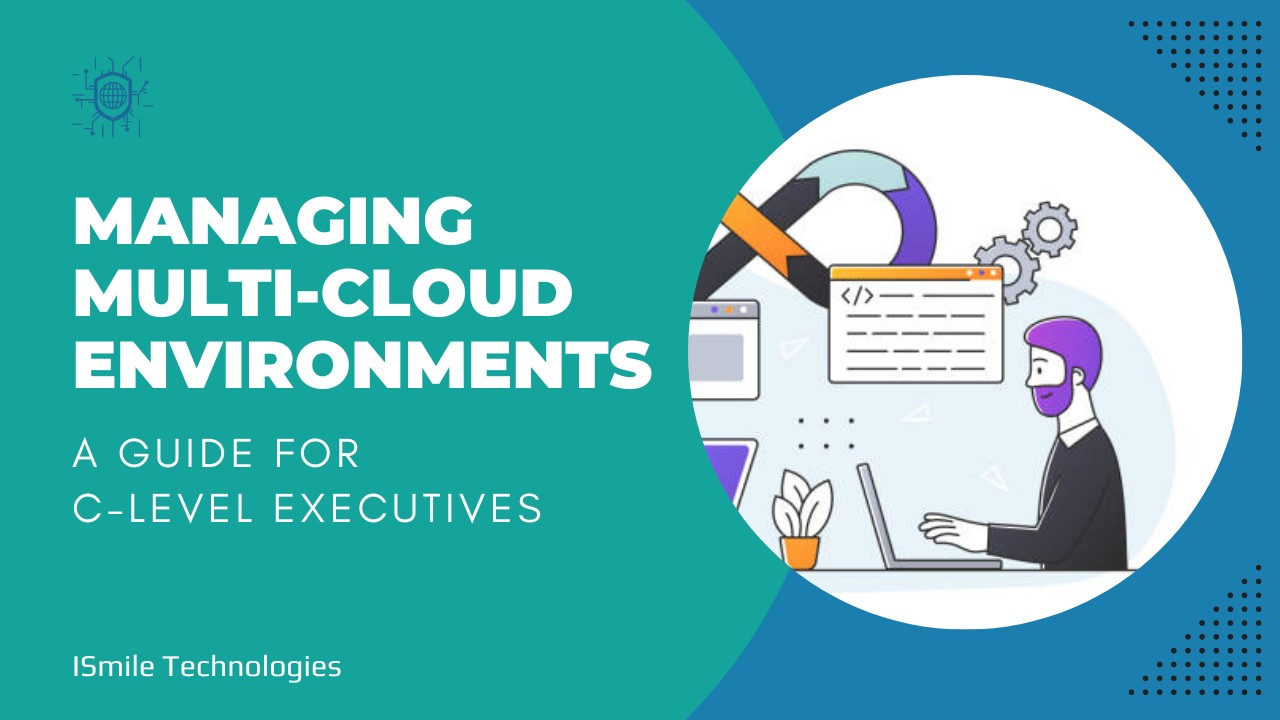In today’s digital landscape, businesses are increasingly adopting cloud computing to enhance their operations and gain a competitive edge. The multi-cloud approach has emerged as a popular strategy, allowing organizations to leverage multiple cloud platforms simultaneously. However, managing multi-cloud environments comes with its own set of challenges and complexities. This guide is designed to provide C-level executives with valuable insights into managing multi-cloud environments, exploring the benefits, challenges, best practices, and the role of cloud managed services and IT services in ensuring a successful multi-cloud strategy.
Understanding Multi-Cloud Environments
To begin, it is crucial to understand what multi-cloud environments entail. Unlike a single cloud approach, a multi-cloud strategy involves using multiple cloud providers to meet different business needs. This approach offers flexibility, scalability, and the ability to leverage specific cloud features and services from different vendors.
Benefits of Multi-Cloud Adoption
- Flexibility and Vendor Independence:
Multi-cloud adoption allows organizations to choose the best services from various providers, avoiding vendor lock-in and enabling flexibility in meeting diverse business requirements. - Enhanced Performance and Reliability:
By distributing workloads across multiple clouds, businesses can improve performance, minimize downtime, and enhance overall reliability. - Risk Mitigation:
With a multi-cloud strategy, organizations can mitigate the risk of service disruptions or data loss by implementing redundancy across different cloud platforms. - Cost Optimization:
By leveraging different cloud providers based on workload requirements, companies can optimize costs and ensure efficient resource allocation.
Challenges of Managing Multi-Cloud Environments
While the benefits are significant, managing multi-cloud environments can present several challenges. It is important for C-level executives to be aware of these challenges to effectively address them:
- Complexity and Interoperability:
Coordinating and integrating multiple cloud platforms can be complex, requiring standardized protocols and seamless interoperability. - Data Security and Compliance:
Managing data security and ensuring compliance across various cloud environments can be demanding, requiring robust security measures and adherence to regulatory requirements. - Skill and Resource Gaps:
Organizations need skilled personnel and resources to effectively manage and monitor multi-cloud environments, which can pose a challenge in terms of recruitment and training.
Best Practices for Managing Multi-Cloud Environments
To overcome the challenges associated with managing multi-cloud environments, here are some best practices for C-level executives to consider:
- Define a Clear Strategy:
Develop a well-defined strategy that aligns with your business goals and outlines the specific use cases for each cloud provider. - Implement Cloud Management Tools:
Utilize cloud management tools and platforms that provide centralized control and monitoring capabilities across multiple clouds. - Foster Collaboration and Communication:
Encourage collaboration between IT teams and departments to ensure effective communication, streamlined processes, and efficient resource allocation. - Prioritize Data Governance:
Establish robust data governance policies to maintain data integrity, security, and compliance across all cloud environments. - Continuous Monitoring and Optimization:
Regularly monitor and optimize the performance, cost, and security of your multi-cloud environments to ensure optimal utilization and identify areas for improvement.
Leveraging Cloud Managed Services
Cloud managed services play a crucial role in managing multi-cloud environments effectively. These services provide specialized expertise, ensuring seamless deployment, monitoring, security, and maintenance of your cloud infrastructure.
By partnering with a reliable managed services provider, C-level executives can offload the day-to-day management tasks and focus on strategic initiatives.
The Role of Cloud IT Services
Cloud IT services encompass a range of offerings, including cloud consulting, migration, architecture design, and application development. These services enable organizations to harness the full potential of multi-cloud environments, providing expert guidance and support throughout the cloud journey. Leveraging cloud IT services ensures the alignment of technology solutions with business objectives, driving innovation and enabling digital transformation.
Future Trends in Cloud Technology
The cloud landscape continues to evolve, and C-level executives need to stay informed about future trends. Here are some notable trends to watch:
- Serverless Computing:
Serverless architectures are gaining popularity, enabling organizations to focus on building and deploying applications without the need for infrastructure management. - Edge Computing:
With the proliferation of Internet of Things (IoT) devices, edge computing brings processing capabilities closer to the data source, reducing latency and enabling real-time data analysis. - Artificial Intelligence (AI) and Machine Learning (ML):
Cloud platforms are increasingly incorporating AI and ML capabilities, empowering organizations to derive valuable insights and drive intelligent decision-making.
Driving Digital Transformation through Multi-Cloud
Digital transformation is a critical priority for businesses across industries. Multi-cloud environments provide a solid foundation for digital transformation initiatives, facilitating agility, scalability, and innovation.
By leveraging the strengths of different cloud providers, organizations can accelerate their digital transformation journey and gain a competitive advantage in the market.
Cloud Innovation for Competitive Advantage
Cloud innovation plays a pivotal role in shaping business strategies. By embracing innovative cloud technologies and solutions, organizations can unlock new opportunities, improve customer experiences, and drive revenue growth. Continuous exploration of emerging cloud innovations is essential to stay ahead of the competition and deliver value to customers.
Need help on maintaining Azure Security Center Secure Score of Clients?
Our experts can help you on all kinds of works on Azure Security Center.
Conclusion
Managing multi-cloud environments is a complex task that requires careful planning, effective governance, and the right mix of cloud managed services and IT services. C-level executives must understand the benefits, challenges, and best practices associated with multi-cloud adoption.
By adopting a strategic approach and leveraging the expertise of cloud managed service providers, organizations can unlock the full potential of multi-cloud environments, drive digital transformation, and remain competitive in the ever-evolving digital landscape.








